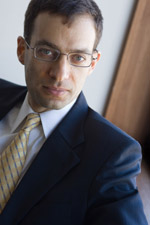 A regime change agenda in Qatar acquires an emir-in-waiting, a fraught encounter between Turkish and American justice in Washington, and a new assessment of how to resuscitate failed states. To subscribe to this daily roundup, click here.
A regime change agenda in Qatar acquires an emir-in-waiting, a fraught encounter between Turkish and American justice in Washington, and a new assessment of how to resuscitate failed states. To subscribe to this daily roundup, click here.
Seth. D. Kaplan in The American Interest on rebuilding failed states today: “The U.S. government [should] break the habit of focusing on the central state, and come to better appreciate that the disaggregation of power is sometimes essential to stability. Partnering with local leaders based on a deeper understanding of local landscapes and actors is essential. Diplomacy, development, and defense (3D) will all need to … recognize the importance of focusing on a wide variety of actors across a landscape instead of just those jockeying for power in capitals; that tradeoffs between competing goals (for example, political order and competitive politics) is necessary; and that progress is liable to be incremental at best. In many cases, nascent local efforts to end conflicts and establish political order will need to be better protected from outside attempts to disrupt or capture them if they are to gain traction and grow in scale.”
Michael Friedson in Media Line on the Turkish president’s response to indictments against his bodyguards in Washington: “Videos that went viral clearly depicted [an] aggressive attack launched by officials in Erdogan’s own security detail … [on] protestors of Erdogan’s visit to Washington last May. Erdogan, seen in the videos apparently approving the attack, has denounced what he called the ‘scandalous expression of how justice works in America.’”
Sami Moubayed in Asia Times on Saudi support for a new emir to rule Qatar: “King Salman of Saudi Arabia received Abdullah Bin Ali at his summer residence in Morocco on 17 August and he was also given an audience with the powerful Crown Prince Mohammad Bin Salman. … Abdullah’s grandfather, Abdullah Bin Jassem Al Thani, ruled Qatar from 1913 to 1949, abdicating in favour of his eldest son, Ali Ibn Abdullah (father of the new emir-in-waiting), who ruled until 1960. Power then went to Sheikh Abdullah Bin Ali’s brother, Ahmad Bin Ali, who ruled from 1960 until 1972, when he was toppled by Emir Tamim’s grandfather, Hamad Bin Khalifa. … Abdullah Bin Ali [has] set up a Twitter account, which, in less than two weeks, has whipped up an impressive 305,000 followers, although the emir himself has made no more than 16 tweets.”

Speak Your Mind